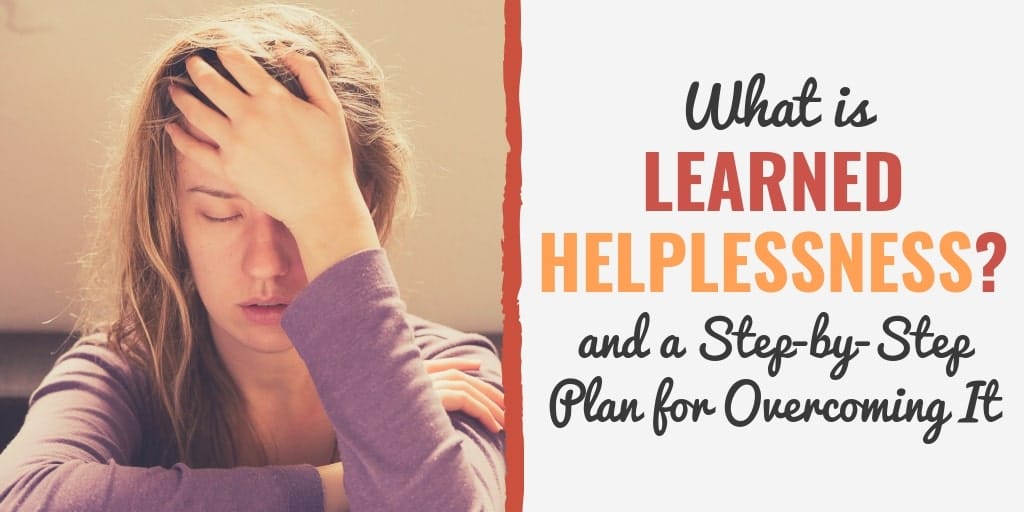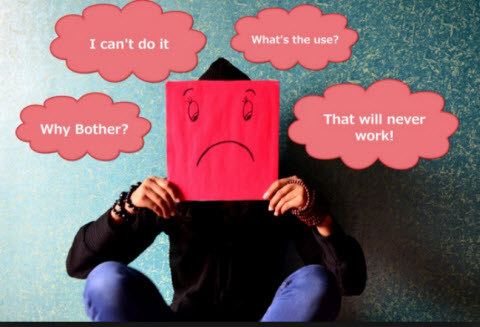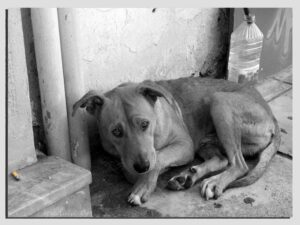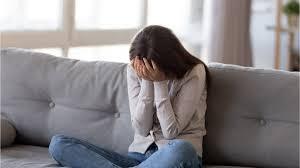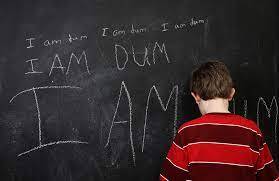Learned helplessness is a psychological and physiological state of mind that occurs when someone behaves in a way but they do, not knowing why. It has been found that this can be caused by factors such as trauma, being abused by caregivers when you are a child, or by being stressed for long periods of time. In this blog post, we will go over what Learned Helplessness is and how you can overcome it.
Contents
- 1 What Is Learned Helplessness?
- 1.1
- 1.2 Background Theory
- 1.3 Symptoms Of Learned Helplessness
- 1.4
- 1.5 Causes Of Learned Helplessness
- 1.6 How Does Learned Helplessness Manifest In People?
- 1.7
- 1.8 Learned Helplessness And Depression
- 1.9
- 1.10 Learned Helplessness In Children
- 1.11 Does Overparenting Lead To Helplessness In Children?
- 1.12 Is Learned Helplessness Related To Feeling Like Victim?
- 1.13 Treatments For Learned Helplessness
- 1.14 How To Overcome It?
- 1.15
- 2 Conclusion
What Is Learned Helplessness?
Learned helplessness is a psychological term used to describe the condition in which an individual has learned that they are unable to control their situation or avoid unpleasant consequences, so they stop trying. This leads them to become passive towards making changes and giving up. It can be broken down into three steps:
- First, you must experience failure at something important.
- Second, you begin attributing this failure solely to yourself (or perhaps others).
- Third, because of these feelings about yourself or your circumstances, you feel unable to make things better for yourself.
Background Theory
The background theory of learned helplessness is that:
- The theory of learned helplessness was first developed by Martin Seligman and Steven Maier in 1967.
- They were studying the effects of electrical shocks on dogs and found that after a certain point, the dogs stopped trying to escape no matter what they did.
- This led them to believe that when an individual experience repeated failure or stress without any means of relief or control, they can begin to feel hopeless and give up.
Symptoms Of Learned Helplessness
Some common symptoms of learned helplessness include
- Feeling powerless
- Hopeless
- Ashamed
- Anxiety
- Depression
- Isolation
- Stop participating in activities they once enjoyed
- Have a negative outlook on life
Causes Of Learned Helplessness
Learned helplessness can occur due to the following reasons:
- Learned helplessness is often caused by exposure to traumatic or stressful life events which lead us to believe we are unable to change our situation.
- This could be anything from being bullied at school, experiencing chronic pain, going through a divorce, or losing a job.
- It can also be caused by a lack of positive reinforcement.
- For example, If you never get any compliments, then it is like you are not good enough. You may start to believe that you cannot do anything right.
How Does Learned Helplessness Manifest In People?
Learned helplessness can manifest itself in different ways depending on the person’s personality and life experiences. Some common symptoms include:
- Feeling powerless or hopeless
- A sense of resignation
- Self-blame
- Loss of motivation
- Social withdrawal
- Decreased interest in activities formerly enjoyed
- Learned helplessness can also lead to clinical depression and anxiety disorders
- In children, symptoms may include refusing to leave the house or go to school
- A lack of energy and motivation
- Withdrawal from friends and family
- Overparenting can be a contributing factor to learned helplessness in children.
Learned Helplessness And Depression
The relation of learned helplessness and depression is:
- Learned helplessness is often connected with depression and it can be a key factor in keeping people feeling sad.
- People who feel sad or depressed often do not try new things. They may pay more attention to the bad things and remember both successes and failures.
- This leads them to continue believing that they cannot change anything or achieve their goals.
- Once you begin thinking like this, your mood will only worsen because failures start to happen left and right due to a lack of motivation.
- It is common for an individual who has experienced learned helplessness to also experience depression.
- In fact, many people struggle with both of these mental health issues at the same time because they go hand in hand.
- The difference between them, however, is that we cannot control our response to learned helplessness while we can choose how we react to depression or sadness.
Learned Helplessness In Children
Learned helplessness in children can be appeared in the following ways:
- Children are not immune to feeling like they have no control over their lives. If you notice any of these signs, it is important to seek help:
- Lack of motivation and energy for activities such as school or sports
- Withdrawal from friends and family
- Refusing to leave the house
- Engaging in self-destructive behaviors such as using drugs or cutting themselves.
- Learned helplessness can be found in children as young as four, but it is more common to see symptoms in adolescents.
- For example, a child who has been bullied at school may believe that they are powerless to change the situation. They might give up trying to make their life better.
- This could lead them into future depressive episodes because of feelings of worthlessness and a lack of self-efficacy.
Does Overparenting Lead To Helplessness In Children?
Over parented children can lead learned helplessness because:
- Many parents believe that the only way to make sure their child is safe and happy in this world is by protecting them from all of life’s challenges.
- They may not allow a child to attempt anything on their own for fear they will fail or get hurt, but what happens when these kids grow up?
- If your child never learns how to deal with hardship, then it could lead them down the path of learned helplessness as an adult.
- They might feel like nothing can go right no matter what they do because they were overparented throughout childhood.
- This leads some people into depression which makes everything even worse due to negative thinking patterns.
Is Learned Helplessness Related To Feeling Like Victim?
Learned helplessness is related to feeling like a victim:
- There is often a connection between learned helplessness and feeling like a victim.
- People who feel like victims do not believe that they can change their situation, so they give up trying.
- They may think that the abuse or trauma they have experienced is too much for them to overcome.
- Victims also tend to ruminate on negative thoughts about themselves and the person or people who hurt them.
- This increases feelings of sadness, anxiety, and powerlessness.
- One study found that women who felt like victims were more likely to experience it in their romantic relationships.
- These women believed that they could not do anything to make things better and this led to them feeling hopeless and helpless in their relationships.
Treatments For Learned Helplessness
The treatments for learned helplessness are:
- There is no specific treatment for learned helplessness.
- If you have feelings that are making you feel bad, it is important to see a therapist or psychiatrist. Treatment will depend on the cause of your feelings.
- You may need medication and/or psychotherapy depending on what factors have contributed to your feelings of learned helplessness.
- You will also want to find a support group or talk therapy session where you can discuss your feelings with others who have been through the same thing.
- Exercise, healthy eating habits, and getting plenty of sleep are important too because they help improve mood and energy levels.
- While there is no specific treatment for this, You can feel better about this feeling if you make changes in your life that will increase your sense of control over things again.
How To Overcome It?
There are several things you can do to overcome:
- Seek professional help if you are struggling with feelings of powerlessness or hopelessness. A therapist can help you understand why you feel this way and give you some tips for how to cope.
- You can try to change the way you think about yourself and your situation. Remember that we can all overcome hard things even if it is difficult.
- You need to take action to get things better. It feels like it’s hard and that nothing will happen, but you can do it. You just need to take one step in the right direction.
- Talking to friends and family is helpful. It helps you feel less lonely. Join a support group too.
- Exercise regularly; this is an effective way to combat depression and anxiety.
- Make time for activities that make you happy and relax you. This could be something as simple as reading a book, listening to music, or taking a walk outdoors.
- Remember that it is not permanent and there is hope for recovery. With time and effort, you can overcome feelings of powerlessness and hopelessness.
Conclusion
Learned helplessness is when someone gives up hope because they think their actions will not impact the desired outcome. If these beliefs are instilled, people often experience depression or anxiety, or chronic stress that has been linked to many health problems including heart disease, high blood pressure, diabetes, and stroke. To combat the problem, it’s important for people to stay positive by doing self-care techniques such as exercise, meditation, and mindfulness practices.
If you are looking for affordable Online Counseling MantraCare can help: Book a trial therapy session
